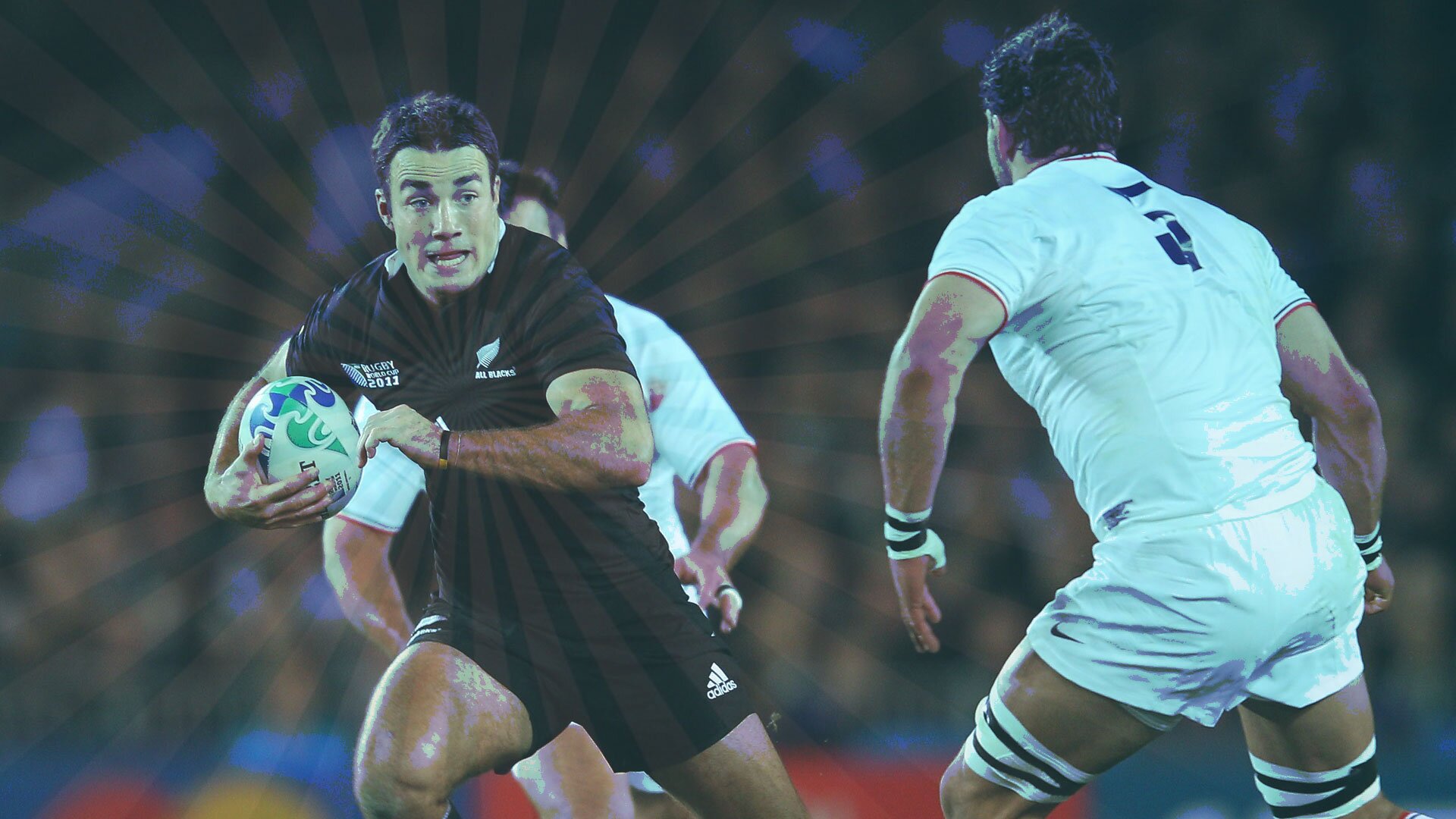Exclusive: Richard Kahui 'had no option but to be an All Black'

“I had no option but to be an All Black.”
Richard Kahui made his international debut for New Zealand in June 2008 and it had been a long time coming.
From an early age, the Tokoroa-born Kahui had big dreams. He wanted to play rugby – not just for fun, but for a living. That aspiration, combined with some healthy encouragement from his dad, is what helped springboard the physical midfielder onto the international stage at the age of 23.
I’m currently camped out with the former All Black at a Starbucks in Fuchu, just west of central Tokyo – not too far from Kahui’s current home. It doesn’t feel that long ago that Kahui was crushing ball-carriers in rib-shattering tackles on the international circuit, but the World Cup winner has now represented Toshiba Brave Lupus in Japan’s Top League competition for the better part of six years.
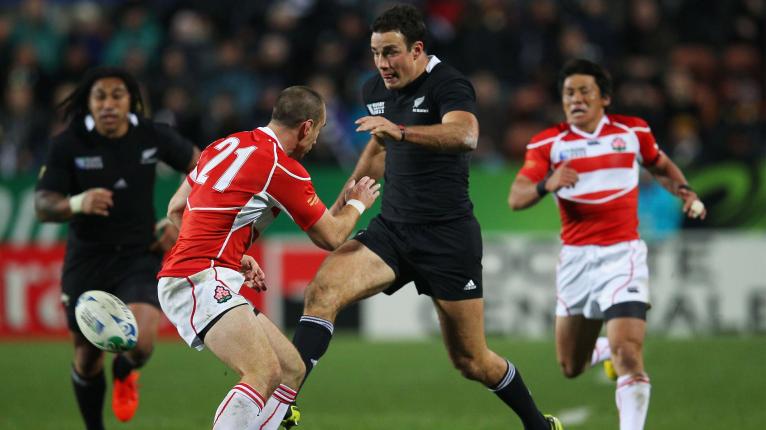
A melting pot of Toshiba players filter in and out of the coffee shop – it’s the number one location for the side’s significant foreign legion to brush up on the local language. At least three lessons are currently underway with the likes of Johnny Fa’auli and Coenie van Wyk present.
A career spanning 15 years has led the affable Kiwi to this point – but it’s the formative years of his life and his profession that Kahui looks back on most fondly, where his passion for rugby and competition was first cultivated.
Early days and signs of promise
“Dad loves his footy, he absolutely loves it,” Kahui says.
“He didn’t force me into it… But he put up rugby posts on the front lawn and my birthday presents were always rugby balls.”
Whatever got Kahui into the sport to begin with, it’s clear that he’s owned his career since he first burst onto the scene as a 19-year-old. You don’t get to be an All Black without having a borderline unquenchable thirst for the game.
Kahui first debuted for Waikato in 2004 but it was a breakout season in 2007 that really catapulted the centre into the spotlight. Kahui’s crunching tackles made him a fan favourite and he ended Waikato’s championship season as the top try-scorer in the Air New Zealand Cup.
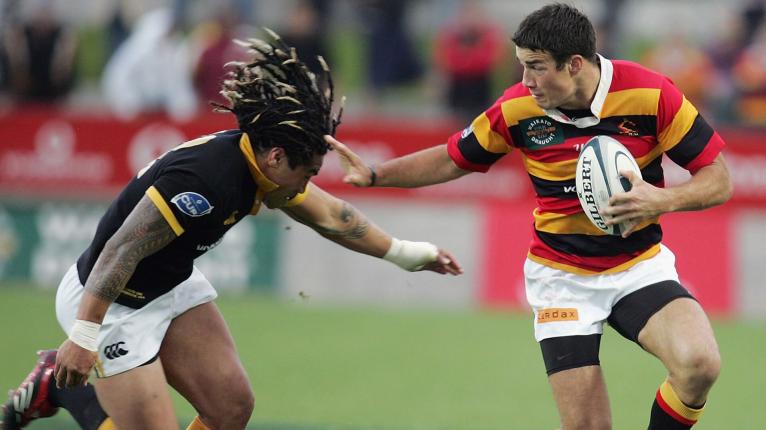
From there, it seemed like the world would be Kahui’s oyster – but things didn’t exactly go to plan.
There’s a long list of international rugby careers that have been curtailed due to injury, but Kahui’s story is probably one of the more frustrating that you’ll come across.
Kahui earned his first All Blacks cap against England in 2008. He scored with his first touch of the ball after cutting inside Dan Carter. 2008 season was unfortunately sandwiched by some incredibly frustrating years.
His successful 2006 season with the Mooloo jumpstarted his career – there were even suggestions that a place on the All Blacks’ end of year tour could be a possibility – but he needed a few seasons of Super Rugby under his belt before he was given the opportunity on the international stage.
Having featured for the Highlanders in early 2006, months before his breakout season with Waikato, Kahui was recruited to his local Super Rugby franchise, the Chiefs, for 2007.
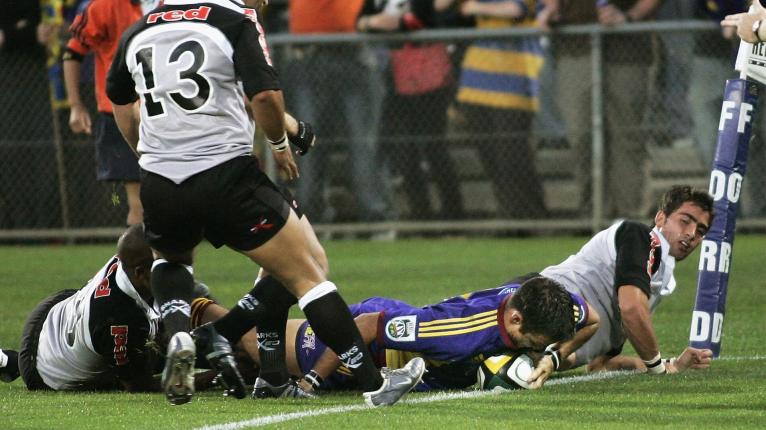
At that time, the All Blacks midfield was still very much a work in progress, courtesy of Tana Umaga’s retirement at the end of 2005. Ma’a Nonu, Conrad Smith, Isaia Toeava and Luke McAlister had all been used by then-coach Graham Henry but no one had cemented their spot in the 13 jersey.
There was every reason to believe that Kahui could force his way into the national side for the World Cup if he were to stand out as much in Super Rugby as he had in the previous year’s Air New Zealand Cup.
He never even got the chance to try, unfortunately.
The first injury
In the Chiefs’ final pre-season match of 2007, against the Hurricanes, Kahui busted his right shoulder. Rehabilitation was suggested – as opposed to surgery – which kept the centre off the park until Round 4.
Kahui ran out onto Loftus Versfeld for his Chiefs debut against the Bulls, but it was not going to be the return from injury that he had hoped for.
Heading into the match, Kahui had his suspicions that his shoulder still wasn’t quite right.
“I was playing table tennis in the hotel before the match and I knew it was no good,” Kahui says when thinking back to the injury.
One ruck clear-out later, Kahui knew that the damage was done.
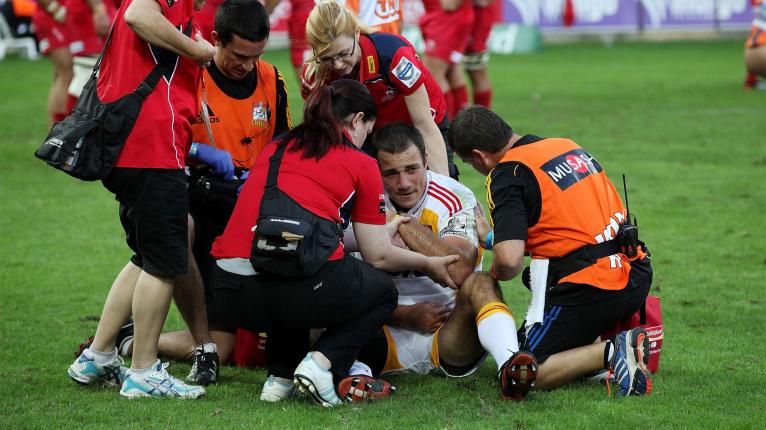
He managed to play a few more games throughout the season, regularly returning from injury only to find that the shoulder hadn’t quite healed up.
After a match against the Highlanders in Queenstown, in which Kahiui further aggravated his injury, his Super Rugby year was called to an end. His shoulder required surgery and he didn’t make it back onto the rugby pitch for the rest of the 2007 season.
That, unfortunately, has been the story of Kahui’s career. Consistent injuries to both shoulders plagued Kahui’s playing days in New Zealand which, sadly for both the player and fans, meant we never really saw the best of him.
Tackles like a bulldozer but built like a marshmallow
Kahui himself struggles to explain why he was so afflicted by injuries.
“My surgeon said that the re-injury rate is like 5%, or something like that. Obviously, most people don’t run back into rugby, so you can put my percentage up a little higher.”
The sheer volume of his injuries still beggars belief.
“I’ve done three each side,” Kahui reports. “Obviously I’m built like a marshmallow, just not tough enough.”
“Guys like Liam Messam or Richie McCaw – they’re in far higher impact positions than me and they’re fine. They’re still running about. So definitely an element of it has to be just how you’re put together and that’s something you can’t help.”
Kahui’s battle with his shoulder injuries almost reads like a bad joke.
After the failure to launch that was 2007, Kahui managed to stay relatively injury free throughout 2008 – prompting his much-awaited call-up to the All Blacks.
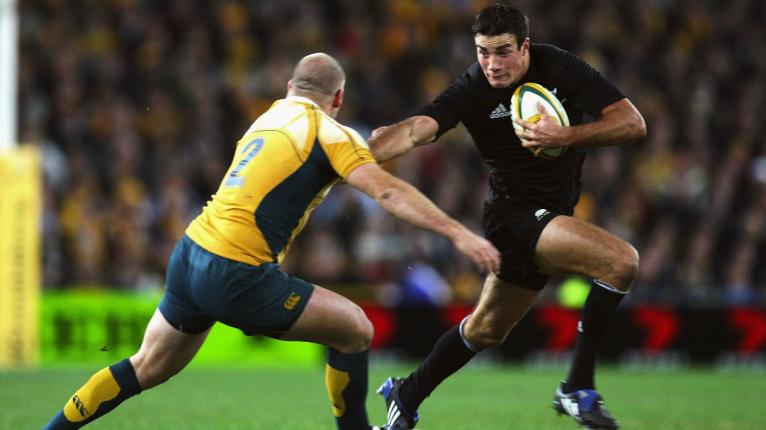
“I felt like I had a great year [in 2008],” Kahui recalls.
“I had a really good All Black season and I felt like I was pushing Conrad Smith really hard.”
The Smith v Kahui rivalry fuelled many a watercooler discussion in New Zealand. On the one hand, you had Conrad Smith – an absolutely reliable linkman who’d forged a remarkable partnership with his Wellington, Hurricanes and All Blacks teammate, Ma’a Nonu. On the other you had the young challenger Kahui, a blockbusting tackler with deceptively quick top speed.
The debate was short-lived, however, because Kahui’s wheels fell off in 2009.
Just a year after his international debut, Kahui made it all the way to the Super Rugby final with the Chiefs but injured his shoulder in the drubbing against the Bulls. He was named in the All Blacks squad the day after the final but he played no further rugby that year.
2010 also went very well, until the All Blacks’ first game against the Springboks. It’s not hard to guess what injury put a stop to Kahui’s 2010 season.
The World Cup and a ray of light
2011, of course, was a World Cup year. By some miracle, that was one of the few times that Kahui was actually able to stay injury-free for a whole season.
“That’s one thing I look back on and think ‘at least for eight weeks of the Rugby World Cup, I was fit,’” Kahui reflects.
Despite being available for selection, the Smith v Kahui debate was a non-event – because both players were used as a part of the All Blacks’ top side. Smith retained his role in the midfield whilst Kahui was shifted to the right wing.
Kahui started in all but one match of the All Blacks’ campaign. One of the highlights of the tournament was the ripping tackle he put it in on Quade Cooper in the semifinal against the Wallabies. Curiously enough, Cooper was also raised in Tokoroa and schooled at Forest View High School.
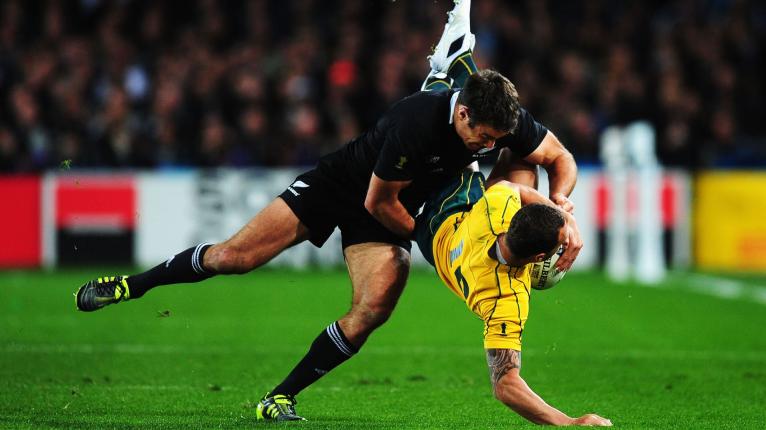
Being able to take part in a campaign from start to finish is something that Kahui has struggled with throughout his career.
“Both of the Chiefs’ titles, I didn’t play either of the finals because I was injured.
“We won them – the Chiefs won them – but I don’t feel like I’ve won one, which is a little bit disappointing, but it’s just how it is.”
The calm and the storm
You would think that successful World Cup campaign – New Zealand’s first in 24 years – would therefore be the highlight of Kahui’s career. That’s not how it felt at the time, however.
“I felt like, when we won the World Cup, I wasn’t that happy,” Kahui reveals.
“I thought that I would be sick with happiness and so pumped, but I wasn’t. It was more just a feeling of relief.
That’s a sobering thought from the 17-cap All Black. The World Cup is the pinnacle of professional rugby, but have the weight of expectations on New Zealand’s national team made winning the World Cup less of a want and more of a need?
“Obviously we hadn’t won it in so many years and there was a lot of pressure. I didn’t feel like that throughout the whole tournament… but after that final, once we’d won, I realised how much pressure we were actually under.”
That feeling didn’t stick around forever, however – but it wasn’t until a few days later that the magnitude of the achievement really settled in. Relief subsided and in its place was sheer joy. That feeling of accomplishment has never left for Kahui.

“When the Weight of a Nation [All Blacks World Cup documentary] came out… I sat on the floor in the lounge, I remember watching it… and going through it brought back all the emotions, and I actually felt like crying.
“I felt like ‘Whoa! That’s us… That’s us…’”
Kahui’s exact thoughts may not have been mimicked by the thousands of New Zealand fans scattered around the country who witnessed the All Blacks’ first World Cup success in 24 years, but the emotions and sentiment would have been much the same.
The flags attached to cars, the roar of the haka across the nation, the close-as-you-can-get conclusion to the tournament – you really couldn’t ask for a better time to go injury-free.
Richard Kahui’s international career may have been clouded by injuries, but he still achieved something that few have managed. His legacy will live on as one of the unluckiest All Blacks, but also one who helped bring home the World Cup for the first time in over two decades.
This is the first of a three-part series on Richard Kahui – his life before, during and after he achieved one of his dreams of becoming an All Black.










































































